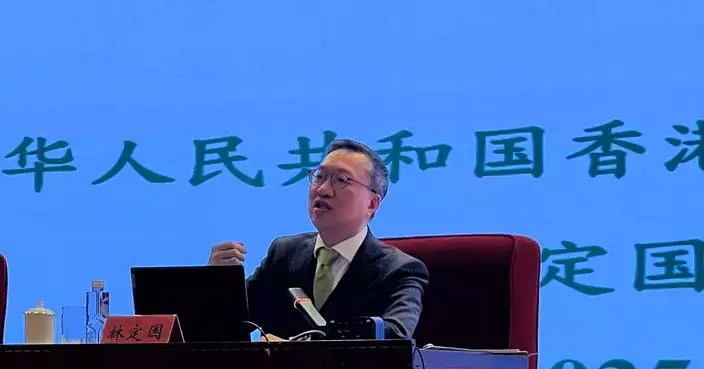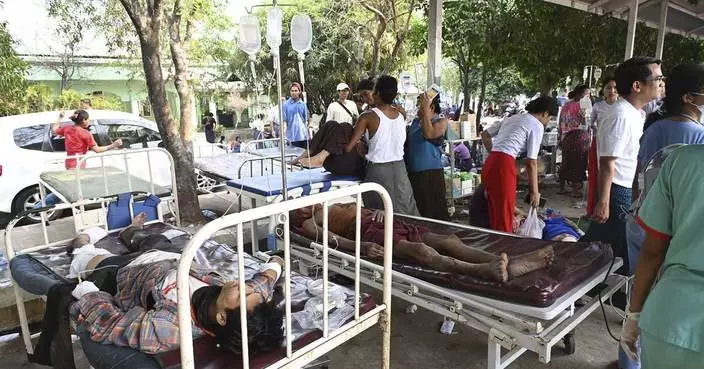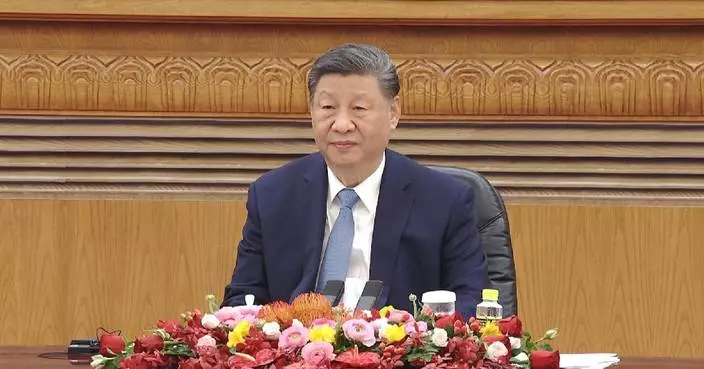Secretary for Health announces fees and charges reform for public healthcare
The Health Bureau announced the details of the fees and charges reform for public healthcare today (March 25). Reforming the subsidisation structure of the public healthcare services aims to guide the public to make optimal use of healthcare resources, reduce wastage and abuse, and enhance healthcare protection for "poor, acute, serious, critical" patients on all fronts, thereby enhancing the sustainability of the healthcare system and strengthening the public healthcare system to cope with the challenges posed by an ageing population, inflation of healthcare costs, etc, and serve as a safety net for all.
As an indispensable part of healthcare reform, the fees and charges reform for public healthcare covers the following three major areas, with a view to ensuring that limited healthcare resources can be directed in a targeted manner to help those patients most in need:
1.Reforming the subsidisation structure: Reforming the subsidisation structure from a systemic perspective by setting the levels of government subsidisation and the proportion of co-payments by members of the public for various public healthcare services to rationalise the relative demands for in-patient, accident and emergency, as well as different tiers of out-patient services.
2.Reducing waste and abuse: Introducing a co-payment model for non-urgent diagnostic radiology and pathology services, adjusting the charges for and quantities of standard drugs, making use of the fees and charges to drive changes to the public's behaviour in seeking medical treatment to guide the optimal use of resources.
3.Enhancing healthcare protection: Strengthening protection for "poor, serious, critical"patients on all fronts by enhancing the fee waiver mechanism, introducing an annual cap on fees and charges at $10,000, and increasing subsidies on drugs and medical devices for the critically ill, with a view to preventing "patients with serious conditions falling into poverty".
The Secretary for Health, Professor Lo Chung-mau, said, "Under the fees and charges reform, we will expand and enhance the co-payment mechanism, based on the principles of 'co-payment by those who can afford and co-payment by those with mild conditions', to strengthen the protection for 'poor, acute, serious, critical' patients. The Government's commitment to the public healthcare system will definitely not be lessened and all the gains from the reform will be wholly utilised for public healthcare services. On strengthening the safety net for all, the reform will enable us to further 'support the poor, save the acute patients, protect those with serious conditions, and help the critically ill', thereby making the safety net larger, more stable, thicker and denser."
The Hospital Authority (HA) will implement the new structure of fees and charges from January next year. The Chief Executive of the HA, Dr Tony Ko, added, "The HA will press ahead at full steam with the implementation of the reform. The structure of fees and charges of public hospitals in the future will focus on providing more support to 'poor, acute, serious, critical' patients and reduce wastage. The new fees and charges will remain at a level affordable to the public, while those with financial difficulties, or those suffering from critical and serious illnesses, will be better protected."
Professor Lo emphasised, "Hong Kong's public hospitals have long been one of the most efficient healthcare systems in the world. The reform will help to ensure that limited healthcare resources are directed to those patients most in need. The reform of healthcare fees and charges will proceed in a gradual and orderly manner. The review of public healthcare fees and charges will continue to be conducted every two years in accordance with the mechanism, with a view to achieving the reform objectives in five years, by which time the 90 per cent overall public subsidisation rate will be maintained. Alongside the implementation of the fees and charges reform for healthcare, the Government will continue to take forward healthcare reform in other areas to build a 'Healthy Hong Kong'."
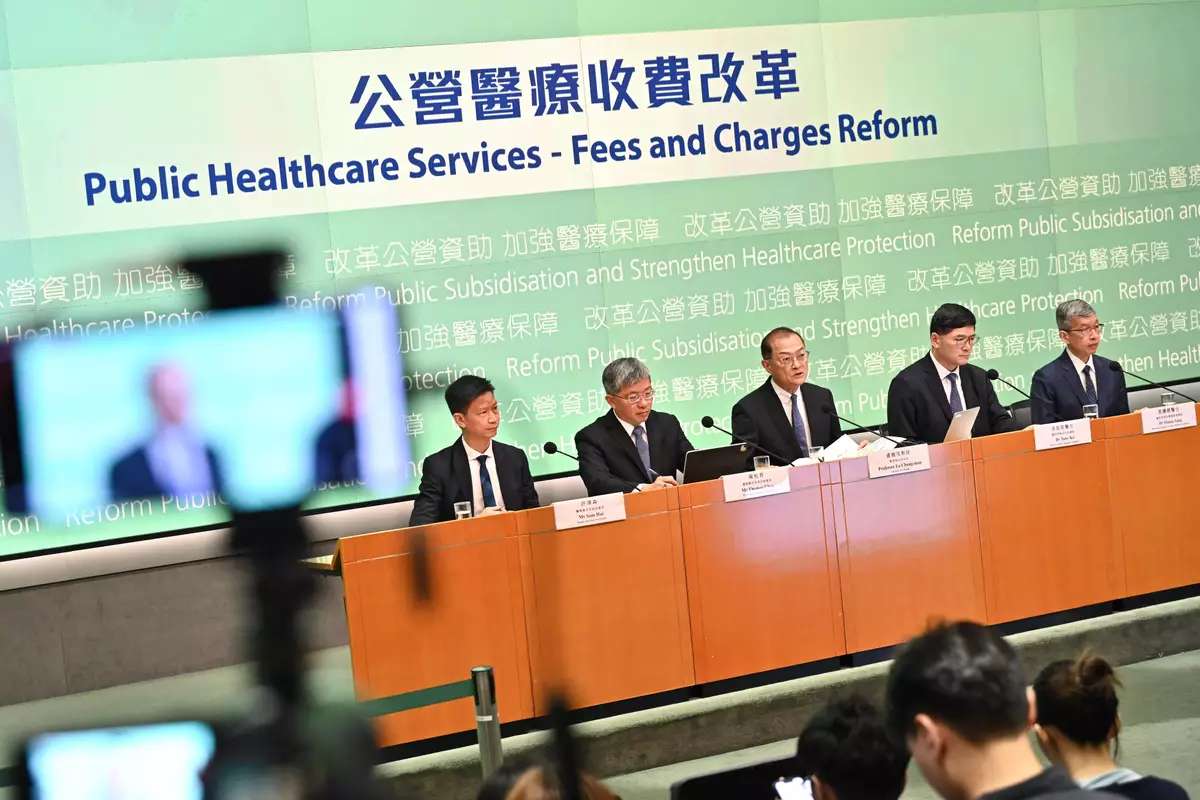
Secretary for Health announces fees and charges reform for public healthcare Source: HKSAR Government Press Releases
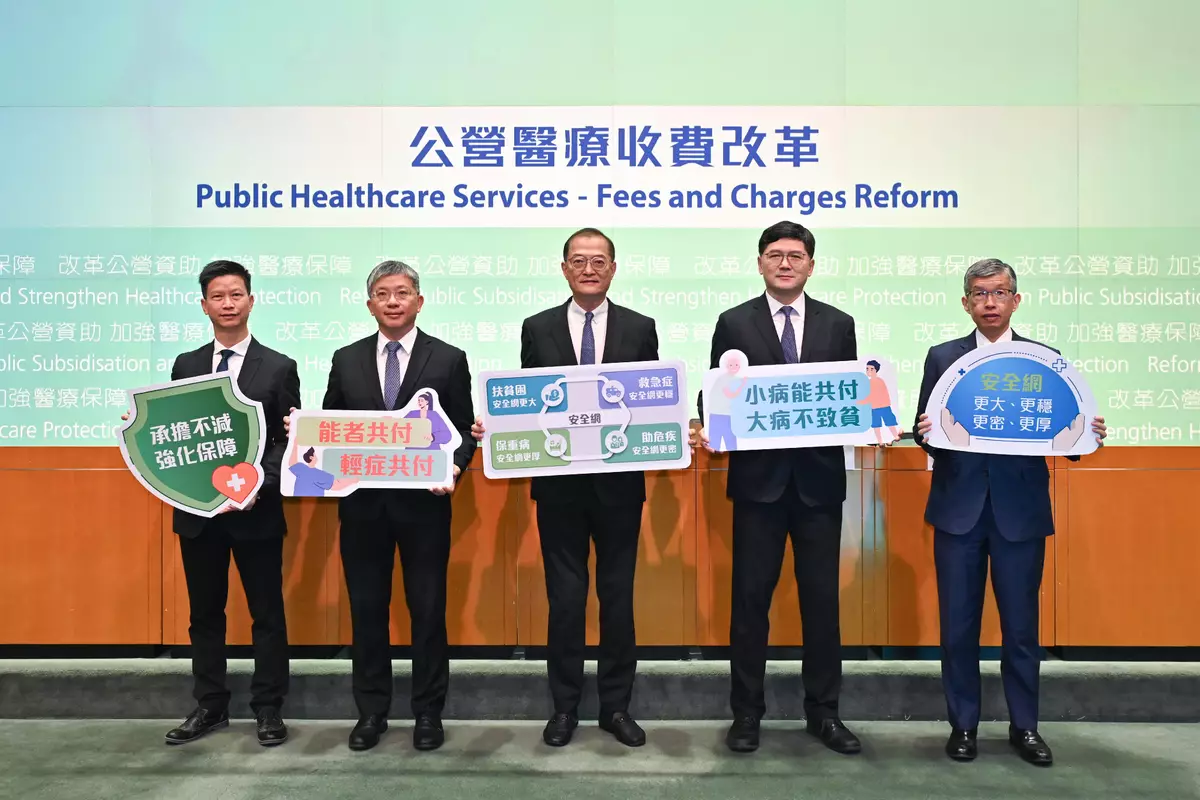
Secretary for Health announces fees and charges reform for public healthcare Source: HKSAR Government Press Releases








